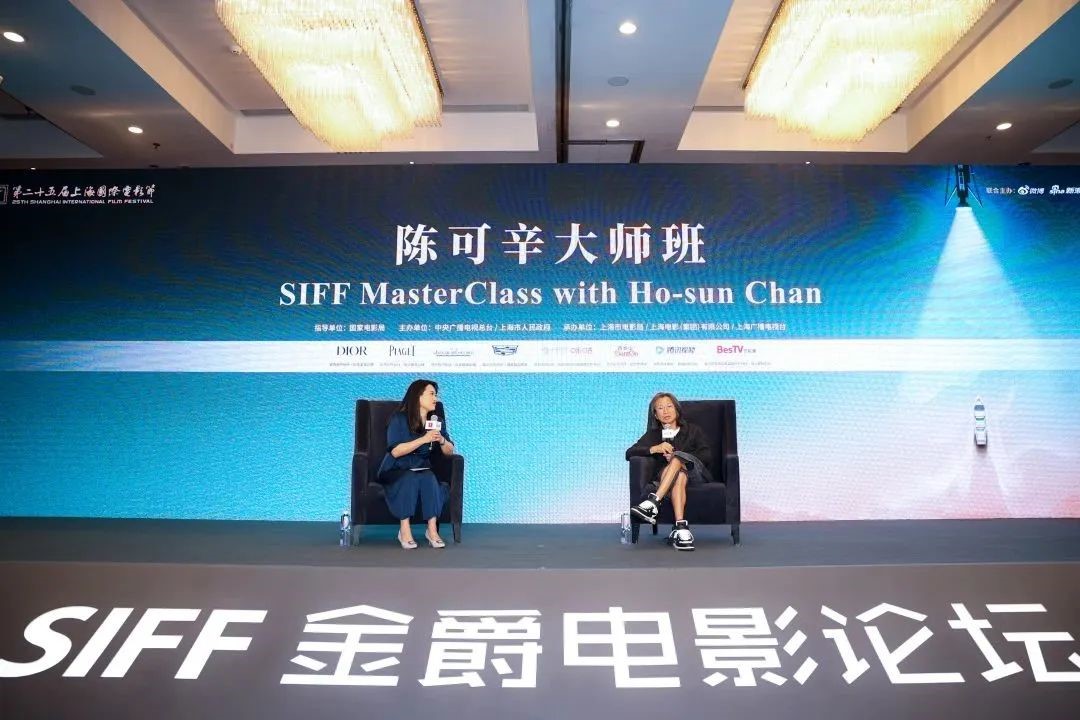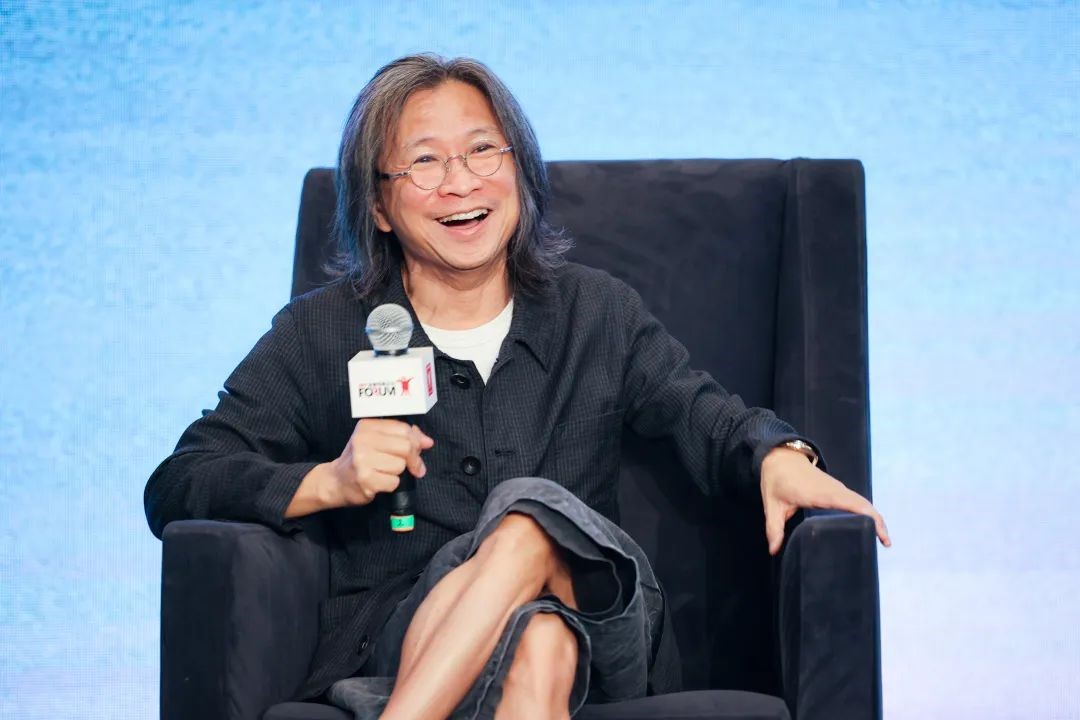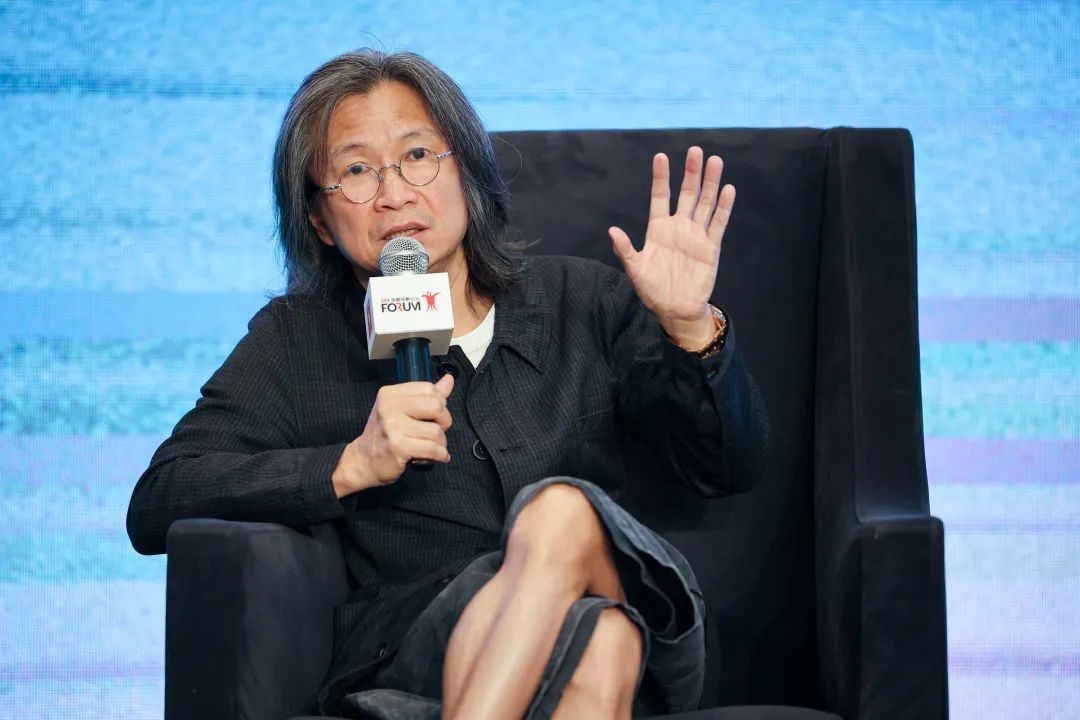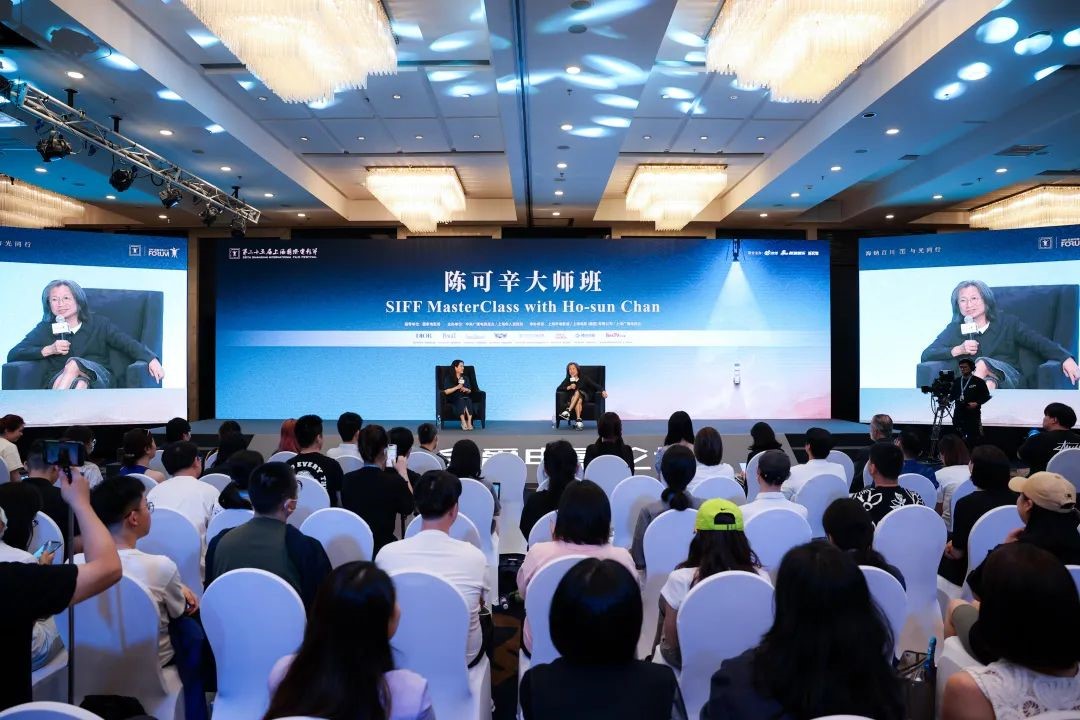MasterClass︱Ho-sun Chan: I Have a Warm Belief That Tomorrow Will Be Better
On the morning of June 11th, the 25th Shanghai International Film Festival MasterClass welcomed its first master, director and producer Ho-sun Chan.
In his nearly forty-year film career, Ho-sun Chan has directed 17 films and produced nearly 40 films. He related his story with the cinema when asked by the moderator, Shen Yifei, an associate professor at the Department of Sociology, Fudan University. Regarding his creative technique, criticized by film reviewers as “embedding gold edges in dark clouds,” he explained his mindset as follows: “I am an optimistic pessimist.” In his eyes, trouble is inevitable in life, but optimism lies in the present. When a person is optimistic, the present becomes joyful. What about the final outcome? “Imagine that the result is the best because at least you have something to gain in the present. That is my attitude toward life and filmmaking,” said Chan.

[Belief]
“I truly believe in ‘warm realism’ because that’s who I am.”

Ho-sun Chan’s father is not a successful filmmaker in the strict sense. Although he would come home every day and enthusiastically explain his work, he would tell his son “Never touch films” and advise him to find a more comfortable job. Ho-sun Chan had a great relationship with his father and when he was going to college, he chose the popular major of hotel management as his father wished. However, his film genes quickly took over, and after just one semester, he switched to a film major.
The harmonious family relationship, especially with his father, allowed Chan to maintain optimism even after experiencing the “cruelty” of the real world. This is also directly reflected in his works. “I can be in a cruel and difficult situation, but I have a warm belief that tomorrow will be better. Recently, people often talk about a term called ‘warm realism,’ and I truly believe in ‘warm realism’ because that’s who I am.”
In the film COMRADES: ALMOST A LOVE STORY, Li Qiao and Lai Xiaojun meet, fall in love, and then separate in Hong Kong, only to unexpectedly reunite on the streets of New York years later. Do real-life couples have such luck? Ho-sun Chan admitted that his films often oscillate between the contrasting emotions of “reality” and “cruelty” versus “warmth” and “optimism.” He doesn’t think that his films are the highest-grossing commercial films, but in the eyes of some film critics, he has earned a reputation for “compromising with the commercial”. The reason behind this, he reckons, is that his films sometimes touch upon the dark side of human nature or the misfortunes of life. However, he believes that the problems behind these harsh realities can be solved. “I truly believe they can be solved, so I can only shoot endings this way.” Chan said, “Some film critics often consider it a compromise with the commercial, so my reputation with them is not very good.”
[Creation]
A great film requires a perfect mix of timing, conditions, and people

Denying that the reunion of the protagonists in COMRADES: ALMOST A LOVE STORY is a “compromise with the commercial,” Ho-sun Chan also recalled the shooting of this film. At that time, while HE’S A WOMAN, SHE’S A MAN achieved tremendous success, the production company was on the brink of bankruptcy. Another major company offered to acquire them under the condition that they produce a sequel. Ho-sun Chan agreed to this completely unplanned sequel but proposed making a relatively artistic small-budget film as well, which turned out to be COMRADES: ALMOST A LOVE STORY. “I filmed COMRADES: ALMOST A LOVE STORY first because I was afraid that they wouldn’t let me make it if I filmed the sequel to HE’S A WOMAN, SHE’S A MAN first,” Chan explained.
COMRADES: ALMOST A LOVE STORY became the most comfortable and free filming experience he had, Chan said. Later, it became widely known that the reception and box office of the “unplanned” movie far surpassed that of the anticipated sequel. “A great film truly requires a perfect mix of timing, conditions, and people. You have to have the best team, the best people, and the best story. Of course, the most important is that the director must firmly adhere to their beliefs,” Chan said. “However, in this process, there will always be people undermining you. From investors to actors and celebrities, everyone will have their own demands, and may lead you astray. The director is the person who brings everyone together to create and make choices.”
After COMRADES: ALMOST A LOVE STORY, Ho-sun Chan directed PERHAPS LOVE, FOLLOWED BY FILMS OF VARIOUS GENRES, SUCH AS THE WARLORD, AMERICAN DREAMS IN CHINA, DEAREST, and LEAP. “Now, streaming media is changing. You can tell a story in over ten hours, but a film is limited to two hours,” he said. Sometimes, he also desires change, “longing to direct 5- or 8-episode short dramas.”
While Ho-sun Chan seems to be “changing” in these productions, he has also kept many elements “unchanged”. “I have always been keenly aware of crisis, so I have always followed the market demands at the time to make changes.” However, Chan insists that change does not mean abandoning principles and bottom lines. “You have to stick to those parts that you ‘will not change no matter what’ because if you change them, the film will not be good. Compared to a film that doesn’t sell well, a bad reputation is even more detrimental to a director because the audience will always remember it like that.”
Chan hopes that creators can find good stories in China. “China has a lot of great stories, and many of them can resonate with people worldwide. So why not make these stories that everyone can empathize with? I believe we should aim to make the whole world want to watch Chinese stories. We shouldn’t make films that are intended to please them or enhance a stereotypical image of China. That won’t lead to progress. And this is something we can change. The Chinese market is also vast enough to provide such resources.”
[Casting]
“Capture the vulnerability”

Each new production by Ho-sun Chan, from the subject matter to casting, becomes a hot topic. When asked about the criteria for selecting actors, Chan responded honestly: first, there must be stars. “Because without stars, there is no investment, and without investment, there is no film." He never shies away from discussing the casting of stars.
However, he also believes that filming stars “is no easy job”, as you need to find their unique qualities and capture what others didn’t. From Leslie Cheung, Carina Lau, and Anita Yuen in HE’S A WOMAN, SHE’S A MAN, to Leon Lai and Maggie Cheung in COMRADES: ALMOST A LOVE STORY, and Kaneshiro Takeshi and Zhou Xun in PERHAPS LOVE, numerous stars have shone brightly in Ho-sun Chan’s cinematic world, leaving a profound impression on the audience. This is likely a result of Chan’s second criterion for casting: vulnerability, for both actors and actresses. However strong or tough the character may be, Chan insists that the performance should reveal the character’s vulnerable side. “Because even the strongest person has moments of vulnerability.”
How to uncover the “vulnerability” of each star and character? Chen Kaige states that as a director, he may have a talent for emotional expression. Despite his age, he still maintains the innocence and sensitivity of “a youth who knows not the taste of sorrow, yet strives to express it.” “That’s how I’ve been my whole life. I still feel like a youth. There are many things I don’t understand and have never experienced, but I enjoy that feeling. My weakness lies in the technological aspect. I have no interest in technology, including special effects, action, and fancy camera techniques. Fortunately, I do have one advantage: I think I have pretty good taste.”







